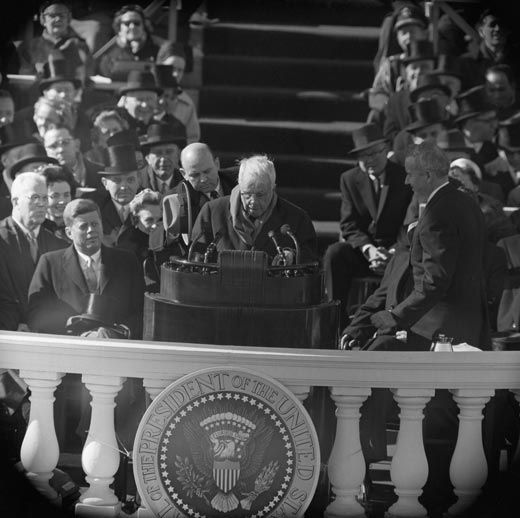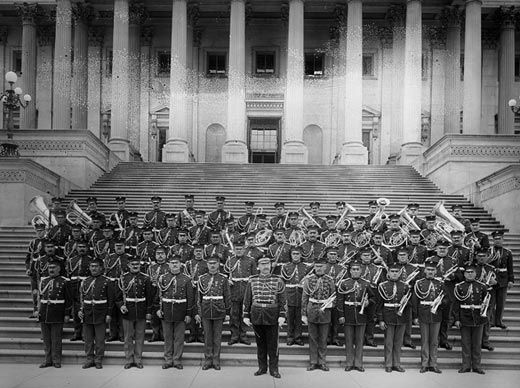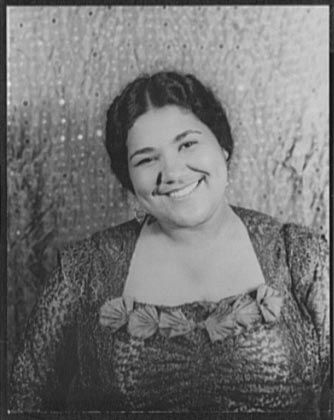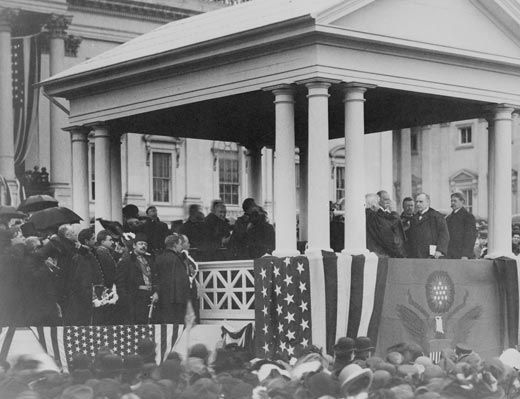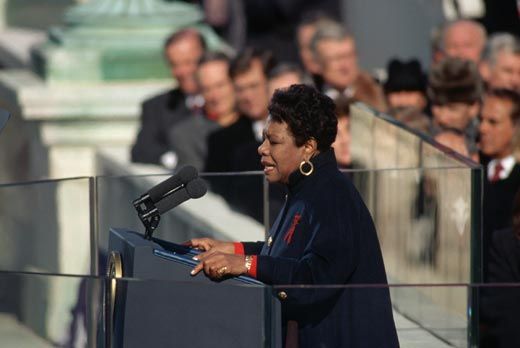After an Inauguration, the Stars Come out to Play
Ever since George Washington danced after his inauguration, the ceremony has brought big names in the arts to the capital city
/https://tf-cmsv2-smithsonianmag-media.s3.amazonaws.com/filer/US-Marine-Band-631.jpg)
In the program for President William McKinley’s 1901 inauguration, a writer prophesied the scene of a 21st -century inaugural ceremony. “Nearly a half million people had been packed into the great glass-covered arena which fronts the east façade of the new Capitol building,” the writer foresaw. To entertain them? “Four great automatic bands were placed in the corners of the space and, operated by buttons, simultaneously rendered a programme of popular music.”
In 2009, President Barack Obama’s first inauguration continued the tradition of entertaining inaugural crowds, albeit with live performances instead of musical machines. Musicians including Aretha Franklin, Yo-Yo Ma and two San Francisco children’s choirs appeared at his swearing-in ceremony and a blockbuster array of artists, including Bono, Bruce Springsteen, and Sheryl Crow, performed in a nationally broadcast concert on inauguration weekend. Poet Elizabeth Anderson read only the fourth poem ever composed for a presidential inauguration.
Music has been part of inaugural celebrations from the beginning, when George Washington danced the minuet at his inaugural ball. Its role in the festivities grew as more people flocked to Washington to be part of the event.
By the late 1800s, the inauguration had become a multi-day affair with luncheons, balls and concerts. McKinley’s 1901 schedule of events, for example, included five official inaugural concerts featuring the United States Marine Band and a 500-voice chorus.
At this year’s ceremony, the band will continue as the inaugural “house band.” Created in 1798 specifically to provide music for the president, the United States Marine Band has played at nearly every ceremony since Thomas Jefferson’s in 1801. Concert band fare—including marches composed by one-time bandleader John Philip Sousa—was the standard until the early- to mid-20th century, when vocal music became part of the ceremony. Before this time, the only singing was the national anthem by a member of the band.
In 1953 at Dwight D. Eisehhower’s inauguration, Dorothy Maynor sang the national anthem and Eugene Conley sang “America the Beautiful,” initiating a tradition of featuring classical or opera stars. In a symbolic moment, African-American contralto Marian Anderson sang at Eisenhower’s second inauguration and again at John F. Kennedy’s in 1961. Leontyne Price sang for Lyndon B. Johnson in 1965. Ronald Reagan and Bill Clinton both chose Jessye Norman, and Susan Graham and Denyce Graves sang for George W. Bush in 2005.
In the days before and after the swearing-in, inaugural concerts have historically attempted to match the grandness of the occasion with an impressive number of musicians. McKinley’s 1897 inaugural concerts were the first to pair choral and band repertoire, and as the 1901 program said, “were such a source of enjoyment to the thousand of visitors in the city” that tradition was continued. The 1901 concerts—featuring “The Famous Republican Glee Club” of Columbus, Ohio, and an inaugural chorus—honored the Army, Navy, Congress, states and people of the United States, and were all held in the U.S. Pension Building (now the National Building Museum) so attendees could see the ball décor “on which the sum of $18,000 has been spent.” Tickets were available to the public for 50 cents. In addition to a variety of patriotic songs, the inaugural chorus sang Stephen Foster’s “Hard Times Come No More.”
The Philippine Constabulary Band from Manila performed at several of William H. Taft’s six concerts, which included nearly 600 voices singing the Hallelujah Chorus from Handel’s “Messiah.” Taft had been Governor General of the Philippines after the United States gained control of the islands after the Spanish-American War.
More recently, the National Symphony Orchestra performed, and radio and TV personalities hosted concerts. Actor Walter Pidgeon hosted Eisenhower’s 1953 inaugural concert, which featured tenor James Melton and soprano Jeanette MacDonald, known for her musical films. Fred Waring’s Pennsylvanians sang a special composition, “Mamie, We All Love You.” Aaron Copland was supposed to be on the program but was removed because of FBI investigations into his alleged communist associations. Copland later led the NSO in a performance for Jimmy Carter’s inauguration, along with Robert Shaw’s Atlanta Symphony and Chorus. Washington Post critic Paul Hume called it “the greatest inaugural concert in history.”
Recent concerts have tapped pop-star talent to mark the occasion, and the Lincoln Memorial has been the venue. Clinton’s 1993 “American Reunion” concert drew hundreds of thousands to the National Mall to hear Franklin, Bob Dylan, Diana Ross, Tony Bennett and LL Cool J, among others. Performers at George W. Bush’s first inauguration included Brooks & Dunn and Ricky Martin. Bush twins Jenna and Barbara hosted a youth concert in 2005 at the D.C. Armory with headliner Hilary Duff.
This year, Franklin, the Queen of Soul, will give a free concert at the Kennedy Center, Sweet Honey in the Rock will give a children’s concert and Washington music venues have booked special lineups. The big names will be as varied as the musical genres: rap star Jay-Z will perform at a theater in downtown D.C. and electronica maven Moby will deejay a midnight dance party at a night club. Other high-ticket inaugural balls will feature performers including Rihanna and Elvis Costello.
Presidents, concert organizers and musicians have had differing opinions about whether popular or classical music is appropriate for inaugural concerts. In 1961 the director of the NSO, Howard Mitchell, expressed relief that Kennedy’s concert would include only “serious classical music,” such as Tchaikovsky and Vivaldi. “I remember playing for Mr. [Franklin] Roosevelt,” Mitchell told the Washington Post. “We’d play a number and then Mickey Rooney would come out and amuse them.”
Reciting poetry at inaugurations is a relatively new addition. Robert Frost delivered the first poem in 1961 for Kennedy, though it wasn’t the poem he penned for the occasion. On Inauguration Day, the glare from the freshly fallen snow blinded him, says Jim Bendat, author of Democracy’s Big Day: The Inauguration of Our President. “I’m not having a good light,” the 86-year-old Frost said. Vice President Johnson tried to shield the poet’s eyes with his top hat, but Frost recited the poem “A Gift Outright” instead, telling the crowd he was dedicating it to John Finley, a Harvard scholar colleague of Frost’s, not John Kennedy.
Three decades later, Bill Clinton carried on the tradition, inviting poets Maya Angelou in 1993 and Miller Williams, a longtime friend from Arkansas, in 1997. Both Angelou’s “On the Pulse of Morning” and Williams’ “Of History and Hope” evoked words and images from the civil rights movement.
This year, Beyoncé will sing the National Anthem at the U.S. Capitol during Obama’s swearing-in on January 21. In 2009, she performed at the inauguration concert and sang Etta James’ “At Last” during an inaugural ball. The lineup also includes Kelly Clarkson singing “My Country ’Tis of Thee” and James Taylor singing “America the Beautiful.”
However large the crowd for these performances, the audiences this year will likely outnumber what McKinley’s writer predicted.
